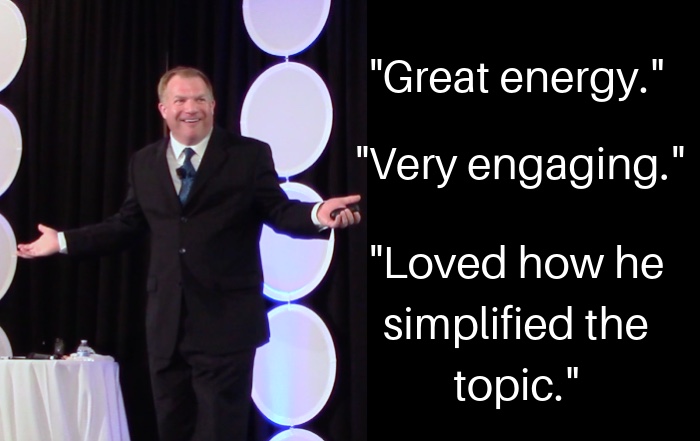
When you’re looking for problems, you may discover things you don’t like. That’s the downside and it’s not fun realizing you may need to work on improving.
The advantage to looking for problems is you open the door to empowerment. You may discover a solution to an issue you might otherwise have overlooked.
The Microphone Problem
I was reminded of this situation at a conference. While sitting in some sessions, I noticed not all presenters were using microphones. This may have been the result of small audiences at the sessions. The speakers may have felt that with a smaller group, there was no need to amplify their voices.
While that may have been the case for people in the front row, for those further back, other sounds, like the hum of air conditioning made it harder to hear. And some presenters projected better than others.
One presenter did ask, “You can hear me without the microphone, right?” This is a tricky question because those who can’t hear it, may have a hard time answering. Also, there are people who can’t hear well, don’t want to draw attention to their disability, and don’t want to sit in the front row.
The deciding answer often comes from the front row, leading to problems for those further back. The speaker will feel like the correct question was asked and affirmation was provided in the response.
For the presenter, even if it feels like overkill, the microphone should be used. When you don’t, you’re basically saying, “I have a tool that can help everyone hear me better but I’m not going to use it unless an audience member contradicts my assumption.”
Looking for Problems in Your Business
As a leader, you may discover similar problems. Employees may be following systems and processes that have become less productive over time.
If you ask, “How is the XYZ process working?” then you’ll likely get a “It’s good,” response.
Some may speak up to discuss shortcomings but many may feel like the audience member, who can’t hear the speaker. They may not properly hear the question or be reluctant to share their opinions.
Instead, leaders may want to ask, “You use the XYZ process every day. How can we improve it?”
This question recognizes expertise, invites critical thought, and welcomes potential innovation. It’s a subtle shift that can make a big difference.
Keep in mind that if you’re going to ask this kind of question, you need to take the time to listen to the answers and potentially make some changes. Don’t ask a complicated question and demand a one or two word answer.
Final Thoughts on Looking for Problems
Sometimes you’ll notice problems right away. But others may be harder to discover and can only be found by doing a little digging. Ask the right questions and listen to the answers. Don’t become upset if you discover a new problem.






